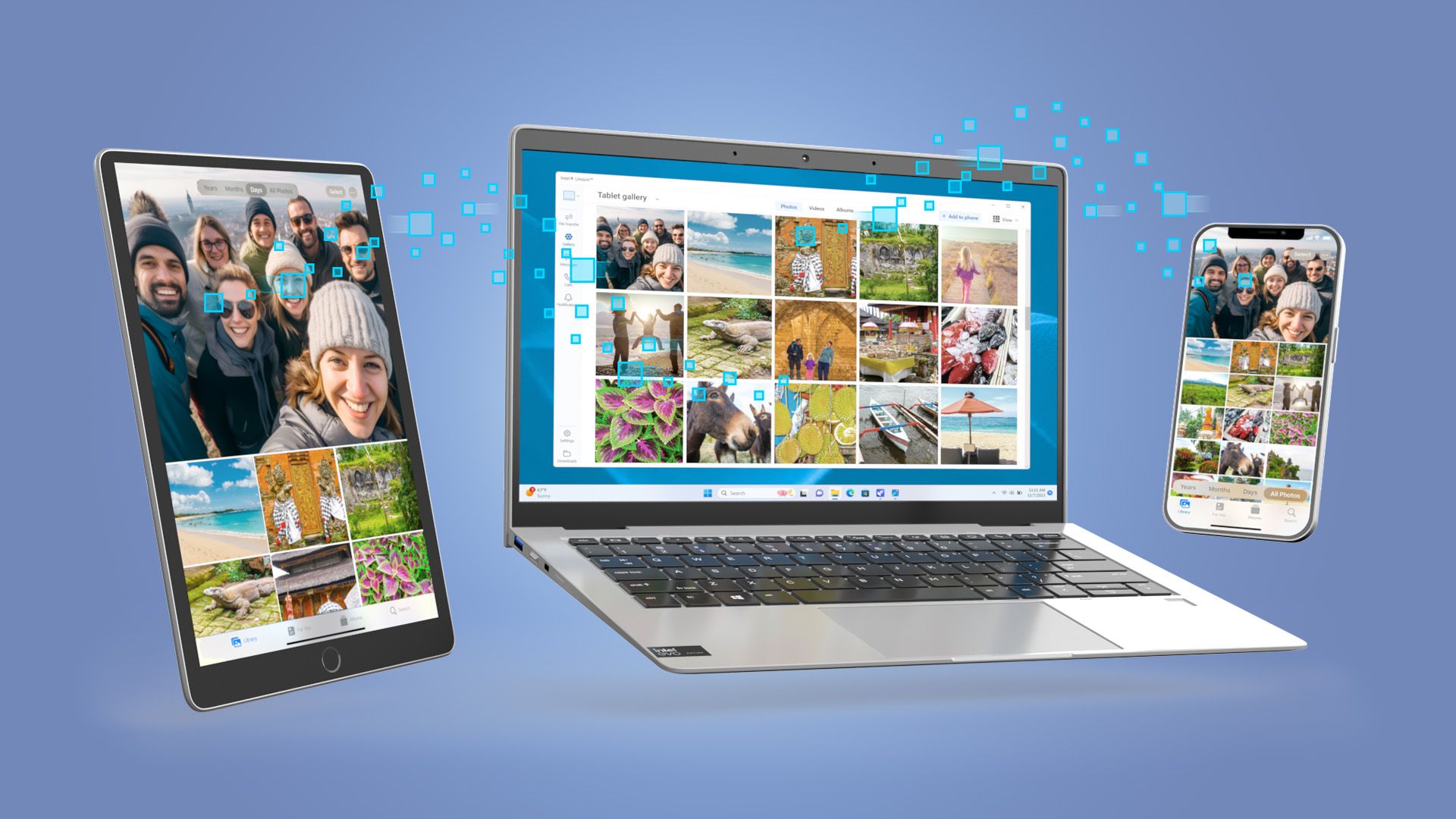Intel is shutting down its Unison app, which allowed Windows PCs to connect with PCs for sharing files, synchronizing photos, and other data. Thankfully, there are several potential alternatives.
The app, which was introduced just two years ago, allowed people to see phone notifications on their computer, make calls, sync photos, and transfer files by dragging and dropping. Most users will lose access to Unison by June 30, 2025, though Lenovo Aura Edition computers will keep the service until the end of that year.
Unison was designed to work with both Android and iPhones, unlike some competing apps like Microsoft’s Phone Link or Samsung’s Samsung Flow, which have more limited compatibility. However, Unison had stricter hardware requirements, which may have made it harder for many people to use. To run Unison, users needed a fairly new Windows 11 PC with at least a 12th-generation Intel processor, along with WiFi 6 and Bluetooth 5.2 support.
The Windows 11 PC requirement likely kept a lot of people from using it. Microsoft is still telling me I need to upgrade mine, and like so many others, I don’t want to. In comparison, Microsoft’s Phone Link works on older Windows 10 PCs, making it accessible to more users. These limitations likely kept Unison from gaining a large audience, which may have played a role in Intel’s choice to discontinue it.
Interestingly, Intel hasn’t made an official statement about shutting down Unison on its website. Instead, the news only appears in app store listings for Apple, Google, and Microsoft. The new text reads, “Intel Unison will soon be discontinued. The first step in its wind-down process is ending service for most platforms at the end of June 2025. Lenovo Aura platforms will retain service through 2025.”
This is surprising because Unison was originally promoted heavily, and we even recommended it. It has gone so far that Unison has been built into some Lenovo and HP laptops. More recently, it was rebranded as Smart Share on Lenovo Aura Edition laptops. The lack of a clear announcement is sending a mixed message, and users don’t have much guidance from Intel on what to do next.
Intel hasn’t explained exactly why it’s ending Unison, but the move fits with the company’s new CEO’s plan to cut back on projects that aren’t central to Intel’s main business. This suggests that Intel no longer sees Unison as important to its long-term strategy and is shifting its focus elsewhere.
This means users will need to find other ways to connect their phones and PCs once Unison stops working. Features like easy file transfers and managing calls from a computer will no longer be available through Unison, forcing people to use other methods that might not work as smoothly. Lenovo Aura Edition PC owners will have more time to adjust since their service will last until the end of 2025. Unison is still advertised on the laptop’s product pages.
It is likely very hard for Intel to compete in the cross-device connectivity market. While the idea of seamlessly linking phones and computers is appealing, creating a solution that works well for everyone has been difficult. I use Phone Link from Microsoft, and I still have so many issues that I can’t imagine it’s easy for Intel.
If you use Unison, then you have until June 30, 2025. However, if you use Smart Share from Intel, you have until the end of the year. Either way, you should get a different app as soon possible.
Source: Thurrott, Liliputing





